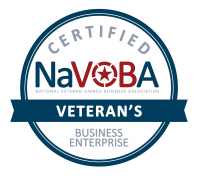Looking Past the Resume and the Importance of Culture Fit
Post authored by: Christopher Shivers — Director of Research at Cook Systems
Understanding who a person is as well as what they can do is vital for understanding how someone will impact workplace culture.

Resumés and Gut Feelings
Recently I was listening to a friend lamenting the fact that his company does not seem to be able to hire well. I reminded him that he got his new job because he was friends with his direct supervisor and that often people make hiring decisions based on gut feelings and resumé data (I won’t say facts). This is not surprising as we are all supremely confident in our ability to judge another person’s character. The problem is being wrong feels just as right as being right.
People are complex. They are more than first impressions and words on a page. First impressions become vital not because a person’s personality, character and skill can be summed up in that moment, but because hiring managers tend to make decisions based on momentary interactions.
What is the alternative? Screen for the whole, complex person. Understanding who a person is as well as what they can do is vital for understanding how someone will impact workplace culture.
Culture?
Culture is one of those words that means a lot of different things to different people. Simply put, workplace culture is made up of the values espoused and acted upon by each person in the organization, especially leadership. These values dictate expectations for how everyone communicates, collaborates, initiates and responds, the speed at which they work, etc.
Unfortunately, culture is still often understood superficially. For instance, judging cultural fit by outward appearance: clothes, facial hair and visible tattoos. Or, adding a ping-pong table and smoothie machine to create a collaborative, innovative culture.
Every organization has a culture because it has people. Make sure your workplace culture is what you want it to be or at least heading in that direction by communicating and holding each other accountable to your values.
Holistic Screening Strategy
When hiring we need to know if the candidate will integrate into the current team, champion the culture and successfully produce the service or product that makes money. In order to do this, we need to screen for personality, values and experience by creating a strategy that gives you the data you need to make an informed decision.
Consider using personality assessments to gauge how a candidate prefers to interact with others. At Cook Systems we use Predictive Index (PI) which does a great job at predicting specific workplace behaviors. There are a lot of assessments out there but PI has created an informative and easy-to-use tool. We use Myers Briggs Type Indicator as a relational way to take a deeper dive into personality for personal and professional development.
Screening for values, although viewed as near impossible past the “gut feeling test”, is really quite simple. Create a document which lists your values and the behaviors and language that signal the candidate is in line with listed values. The trick is to make sure whoever is doing the hiring is a culture champion, embodying and promoting the values that represent your culture. This person should be practiced at listening and asking specific, personal questions.
In screening for experience, the resumé is only the tip of the iceberg. Today there are a lot of accessible tools to test a candidate’s level of skill, especially in IT roles. Hiring data professionals? Test their proficiency in SQL. Software Developers? Coding challenges are quick and simple to access. Hiring for roles outside of IT? Ask for a demonstration of skill or knowledge.
Take your time in setting up your screening strategy. Not everything can be implemented at once and there will certainly be hurdles to overcome. Good luck!
For help with screening strategy and talent acquisition email: cshivers@cooksys.com

